Guest editor Winnie Asiti talks with climate activists Nisreen Elsaim in Sudan and Kassim Gawusu-Toure in Ghana about the journey to climate justice being driven by the younger generation
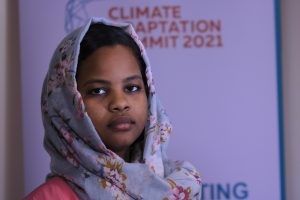 Nisreen Elsaim
Nisreen Elsaim
WA: Nisreen, could you introduce yourself and tell us a little about your work?
NE: I am currently a junior negotiator with the African Group of Negotiators, I’m also the chair of Sudan Youth Organisation on Climate Change, and chair of UN secretary-general’s Youth Advisory Group on Climate Change. My main mission is to bridge the gap between young people and different groups: private sector, government officials, policymakers, international donors, and so forth. So all of my roles are connecting people. We cannot achieve what we want to achieve if we keep staying away from each other.
WA: Why is it important for young people’s voices to be heard, especially at this time when we are faced with the Covid-19 pandemic and increasing climate disasters across the globe?
NE: Three main reasons. Number one, all the problems we are dealing with now are going to hit this generation and the next generations most so we need to be the most knowledgeable, ready, and the most consulted. Second is that we are moving forward technologically, and it requires a lot of flexibility to exploit that, which previous generations are resistant to. And the third reason is that many people lose their passion as they get older and these times require a lot of passion. The work involves sacrifice and if you don’t have passion, then you can’t sacrifice.
WA: What gains do you think young people have made in climate justice?
NE: Recognition. The international community, UN agencies and even governments and policymakers have started to recognise the efforts of young people towards climate change. The second gain is that numbers are increasing. I think by 2023 or 2024, the whole population will be climate advocates, because we have made a lot of breakthroughs even with older generations, not only young people.
Walk the talk. We need to stop hearing promises and see action. We need to see more funding and support going to youth climate movements.
WA: What does intergenerational equity mean to you?
NE: Equity means that everyone will have what they need to succeed, it doesn’t mean equality, it means that the weakest, the most vulnerable, the poorest, would get more, and the most privileged less. Intergenerational equity doesn’t mean we need the same resources that previous generations had, but it means that we need the same opportunities, or the same hope. In terms of climate change, it means that we can develop ourselves and our communities in a healthy environment, like the previous generations did.

Credit: Sierra Club/Flickr
WA: What are young people doing ahead of COP26?
NE: COP26 is a milestone, but it’s not the end of the road and we should be strategising our way of thinking. What we can achieve in the few months before then is to build momentum for the next years and particularly ahead of next year when COP will be held in Africa.
WA: As a negotiator, what outcomes are you looking to see from COP26?
NE: Finance is always an issue in every COP, mainly because we don’t have a strict definition for climate finance. That’s a huge agenda item that I expect to see advance in COP26, because 2020 brought disasters in many countries and the governments of those countries, especially the developing ones, need conversations about it. The market and non-market mechanism is still a hard issue and we still don’t have a clear design of how things would happen there either. Both market and non-market mechanisms are failing, so I think there will be a lot of discussion of article 6 of the UNFCCC Paris Agreement.
WA: And what do these areas mean for young people?
NE: Actually, article 12, which is the action for climate empowerment, is one of the most important topics for young people, because the six items talk about training, education, public access to information, public participation, international co-operation and it has the spirit of young people and the spirit of the Paris Agreement itself. The other thing is the increasing number of youth delegations. We have been pushing for youth inclusion through all of 2020 and this year, so I think more countries will have youth delegations in their representation and youth participation in different areas.
WA: What do you want to see from philanthropy?
NE: Walk the talk. We need to stop hearing promises and see action. We need to see more funding and support going to youth climate movements. I’ve been on the board of the Sudan Youth Organisation on Climate Change since 2016, and our annual budget has never exceeded $15,000, which is peanuts.
But there is a moral issue involved, too, when it comes to bodies pledging support for youth movements. For example, a leading company in the oil industry cannot say, ‘Well, we will earn billions of dollars from oil and fossil fuels, and then we will donate $1 million to an organisation’, it can’t happen like this. And the UK government are asking leading companies from the oil industry to help co-ordinate the COP arrangements which is a huge issue.
WA: If we have this conversation again in 2030, what do you hope we will be talking about?
NE: I hope that in 2030 we will be discussing for example how we can have more forests and fewer cities and I hope that we reach a point where we are restoring the balance between the two. The last thing I want to say is that we need climate justice and we need it now.
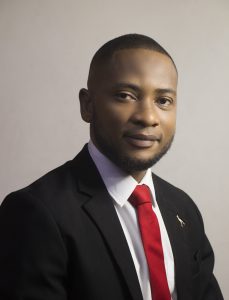 Kassim Gawusu-Toure
Kassim Gawusu-Toure
WA: Kassim, could you introduce yourself and tell us what you do on climate change?
KGT: I’m a climate change activist, a conservationist, and a youth advocate for sustainable development. In Ghana, I run a youth-led NGO called Greener Impact International. We provide a space for young people to understand climate change and how they can take action to address it, support biodiversity laws and promote a food security that has no adverse effects on climate. I am also the executive co-ordinator of the African Youth Initiative on Climate Change (AYICC) and I am proud you are also a founding member of this network which provides a space for young people across the continent to engage on the issue of climate change. We have about 45 national chapters and over 20,000 memberships.
WA: Why do you think it’s important for the voice of young people to be heard especially now?
KGT: Young people are very much hit by Covid-19 in terms of economic, social and health impacts; this is not totally different from what we see with climate change so it is very important that we address climate change and all the development and health issues related to it.
Resources we are utilising today should be used in such a way that future generations will also have the opportunity to benefit and that individuals and countries should contribute to this effort within the limits of their capacities.
WA: What sort of gains do you think young people have made in climate justice at the national and regional levels?
KGT: As well as being a key part of the UNFCCC processes, young people have contributed significantly to promoting awareness about climate change. Many people have told me they got to know about climate change because of the international movement led by Greta Thunberg, for example. At a regional level, the AYICC is using innovative approaches, including online and social media platforms to reach out to, and mobilise, young people to make sure they are not left out of the decision-making processes. We have held three Africa Youth Conferences on Climate Change which provides a platform for young people to collaborate and exchange ideas and knowledge. At national level, we have young people implementing climate related actions on the ground – pioneering climate-friendly agriculture, clean cooking stoves to ensure that emissions are curtailed and planting trees and restoring mangroves, for example.
WA: What does intergenerational equity mean to you?
KGT: It means that resources we are utilising today should be used in such a way that future generations will also have the opportunity to benefit and that individuals and countries should contribute to this effort within the limits of their capacities.
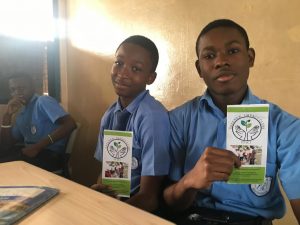
Credit: Greener Impact International
WA: As an African Youth Initiative on Climate Change co-ordinator, what are young people doing ahead of COP26?
KGT: AYICC is going to produce a continent-wide position paper. We are hoping that we’ll be able to bring people together ahead of COP26, because this is going to strengthen our voices as young people from the continent. We have also learned from Covid how to take advantage of online opportunities, so we are now providing capacity for young people who have set up green enterprises to build online marketing skills so that they can sell online. With the support of the Open Society Initiative for East Africa (OSIEA), we have initiatives in Uganda, Kenya, Tanzania, Ethiopia and also in Sudan.
WA: As one of the Africa Group of Negotiators, what are some of the key outcomes you want from COP26?
The critical output that I would expect from Glasgow includes the completion of negotiations on article 6. This has serious implications on Africa because we have the opportunity to trade our carbon with other countries. I also hope that the levy on the emissions trading to be agreed will significantly increase the portfolio of the Adaptation Fund.
I am also closely following the negotiation on common timeframes. Some countries are using five-year, others are using ten-year timeframes for their nationally determined contributions (NDCs). The Paris Agreement stipulated a common timeframe, and we need one because it has implications for transparency as well as tracking progress on the NDCs. Besides that, I expect that there will be an enhanced ambition, not only on mitigation and adaptation goals, but in terms of inclusion, providing spaces for young people to engage and making sure that young people acquire the needed skills, knowledge and resources from COP26 to help them implement concrete actions on the ground. That would make so much difference in terms of achieving the mitigation and adaptation goals.
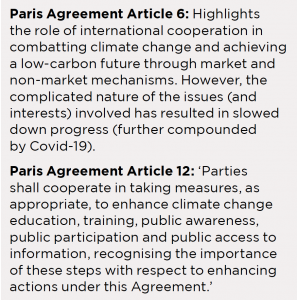 WA: How would a greater focus on youth in climate philanthropy circles make a difference?
WA: How would a greater focus on youth in climate philanthropy circles make a difference?
KGT: Philanthropic support for young people has tended to be about providing support for young people to hold meetings, to organise themselves etc. We need more focus on supporting action on the ground. When we talk about climate conservation, agriculture, ecological restoration, these are very critical in addressing climate change, and also provide opportunities for young people to find employment and purpose, and that is what I think philanthropy should be tailored towards.
WA: What would be the question you would like to ask COP president, Alok Sharma?
KGT: We have seen over the years that any time COP processes are held in Europe, there are barriers that prevent young people from engaging, so I’d expect conscious efforts to be made to ensure that young people from Africa are included in these processes. I’ll just mention three barriers: one is access to accreditation, because young people in Africa do not have the social connections to get that. The second is about funding. We need funding for our members to participate in the action. Third, there should be spaces for young people, and particularly African youth, to showcase our actions to the general participants.
WA: If we have this conversation again in 2030, what do you hope we’ll be talking about?
KGT: Both the SDGs and the Paris Agreement have 2030 as their target year, so in 2030, I hope it would not be a conversation highlighting the problems facing young people on the continent, but rather celebrating the success that these two global action plans have achieved and impacts they have made in the lives of young people.

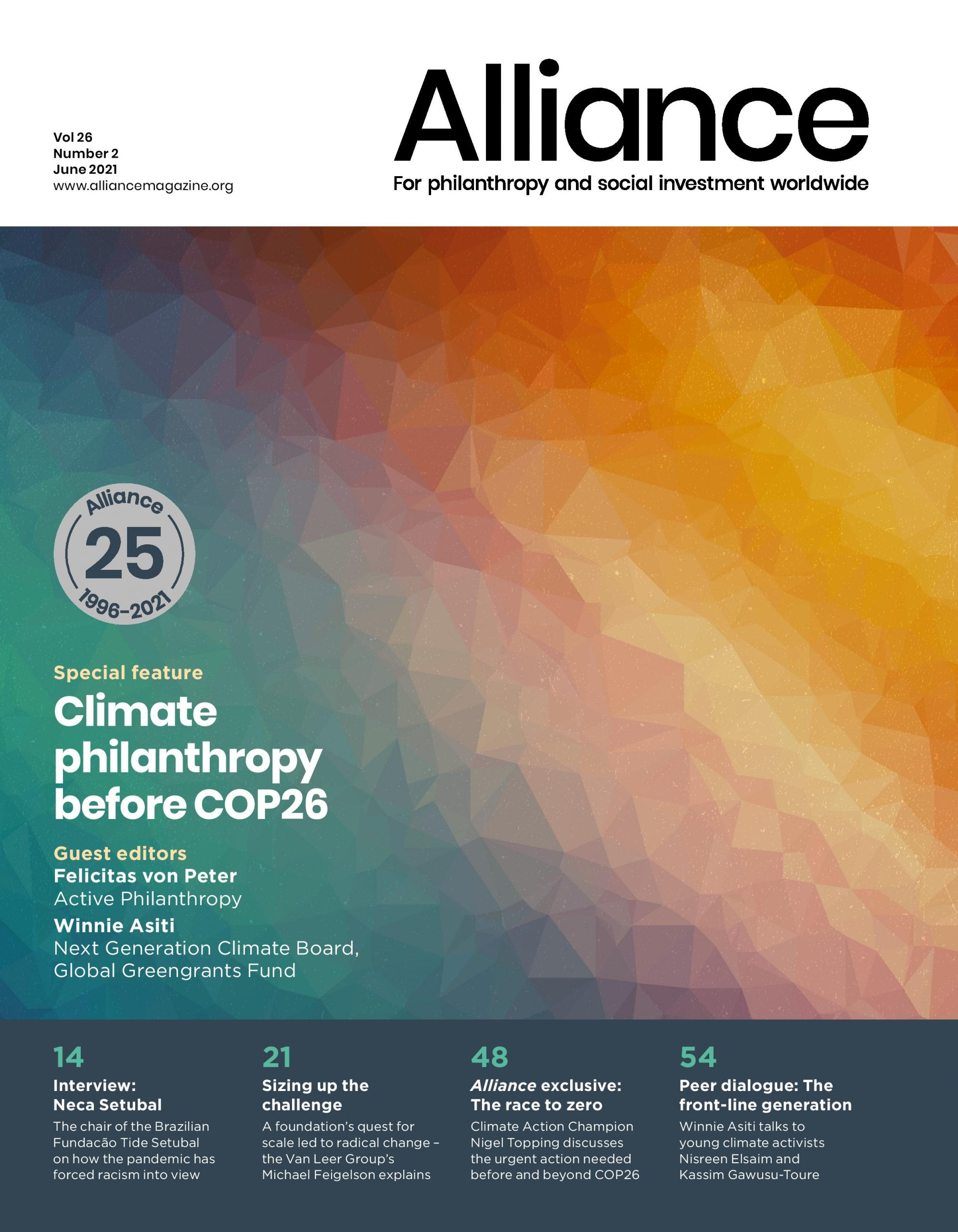




Comments (0)